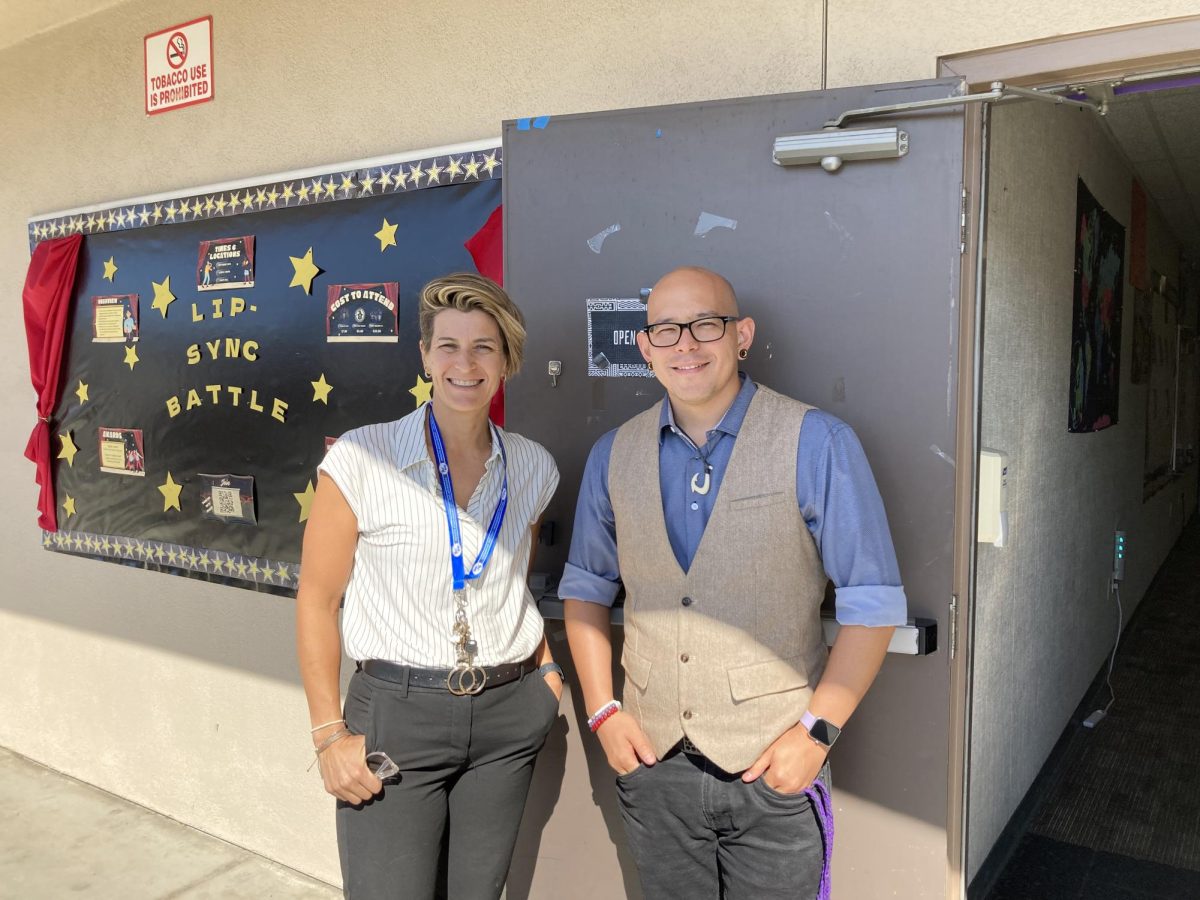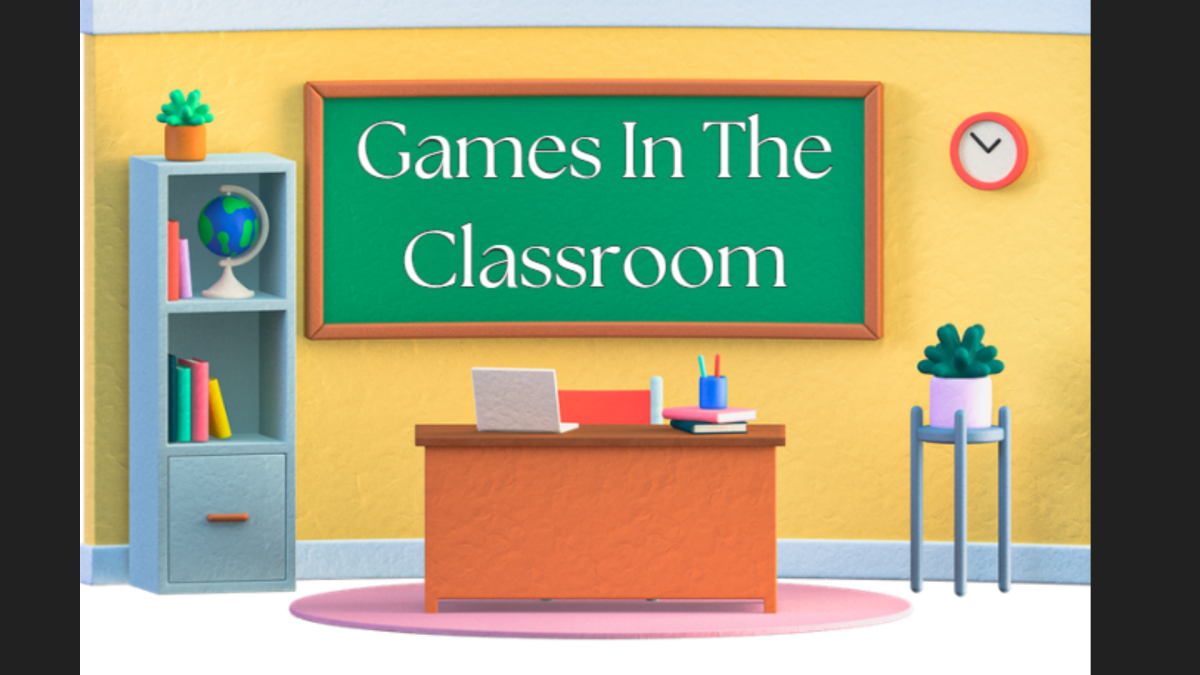Isn’t it boring to sit through an hour of someone talking? It makes learning dull, exhausting, and boring. However, on the chance that teachers plan to have games (online or otherwise) in their lessons, it really excites us because we stray away from our typical learning environment by incorporating something relevant to us. Does that excitement benefit our ability to understand and process information?
When we play games, our brain already associates it with the feeling of happiness, which makes it easy to remember things in them. Knowing this, shouldn’t games utilized in class help us learn better?
Many classroom settings are often set up for a learning experience, though that experience can be quite the opposite of engaging. From reading long articles to taking notes on a lecture, activities claimed to be fun and helpful towards students often aren’t. Learning has become associated with feelings of boredom, exhaustion and frustration. However, on the other side of the spectrum, we find excitement, interest, passion and happiness in things we enjoy. One of those things are games, whether it be online or traditional board games.
In our brains, since childbirth, concepts are associated with our emotions, which influences our attitude when dealing with different situations. So, knowing this, it is possible to trick ourselves into learning. In fact, some teachers use this to their advantage.
Middle College High School world history, economics and college & career teacher Ricardo Anguiano elaborates on how he utilizes games to his advantage.
“I think what helps students understand a particular subject is to connect the content to them and show them how it’s relevant to them,” Anguiano said.
He additionally adds that it helps students and it ensures they are mentally prepared. By incorporating something relevant in student’s lives into the classroom, they are far more willing to learn from it.
“I am for using games to help students understand concepts. I occasionally use them in my lesson for my students to review the material and get a better understanding of it,” Anguiano said.
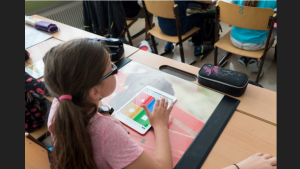
An article titled “Growth, Grit, and Gaming: Video Games in Education” suggests that games inspire and motivate us towards a goal while also developing our skills of persistence in the face of adversity. It provides us with the outlet and opportunity to learn in our own way.
“Video games can also help students develop ‘grit’ or the passion and perseverance to work towards long-term goals as described by Angela Duckworth, PhD. Some argue that video games help develop grit as players follow the rules, acquire and practice skills and apply those skills to achieve specific goals,” the article said.
Note-taking and lectures are often boring for students because the lesson plans are dispassionate and non-engaging, resulting in the students becoming uninterested.
Senior Daisy Villalobos speaks about her experience throughout her academic years and how she feels about the typical learning environment.
“The lectures are usually very well thought out but as someone who has to sit there for over an hour, it’s really hard to try and remember all of the information, especially if there are no breaks,” Villalobos said.
So, instead of lectures, games should be utilized in an effort to make the average student learn and understand more efficiently, not just memorize.
Junior Omar Peña explains his opinion on the subject on how games/fun activities help him academically.
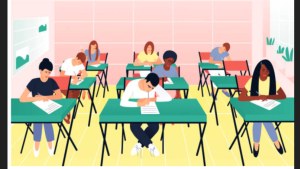
“It is easier for me to remember things when I’m in a competition for it. Most people are naturally competitive,” Peña said.
In a competition, our minds are in a state similar to adrenaline which causes us to experience a burst of confidence and concentration. This allows us to think more critically than when we are relaxed and distracted. When focused, our mind blocks out any distractions, such as our thoughts or our physical environment.
According to an online article, “How To Use Video Games in the Classroom,” written by Janelle Cox, it speaks about how online games being utilized in lessons make students a lot more willing to learn and helps them develop good habits.
“By incorporating video games into your curriculum, you are not just entertaining students; you are helping them develop critical skills and enhancing their overall learning experience,” Cox said.
According to Villalobos, using games in the classroom is something she agrees with. Memorization is an essential skill in the school environment by recalling what should be applied to solve the question (e.g. solving a math problem, answering questions regarding a book, etc.).
“…Using games and prizes as an incentive, it makes me remember parts of lessons that you should remember,” Villalobos said.
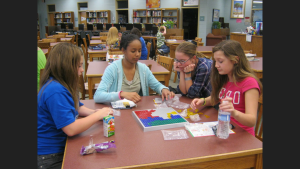
Games encourage students to learn and understand better while also enhancing the learning process to a more effective level. By connecting to students in a friendlier way, studying and learning will no longer be frustrating or boring. Instead, students will find this process more fascinating and spark their natural curiosity. The school environment will be one in which all students will be able to meet teachers’ expectations, all achieved by exploring the power of play.


